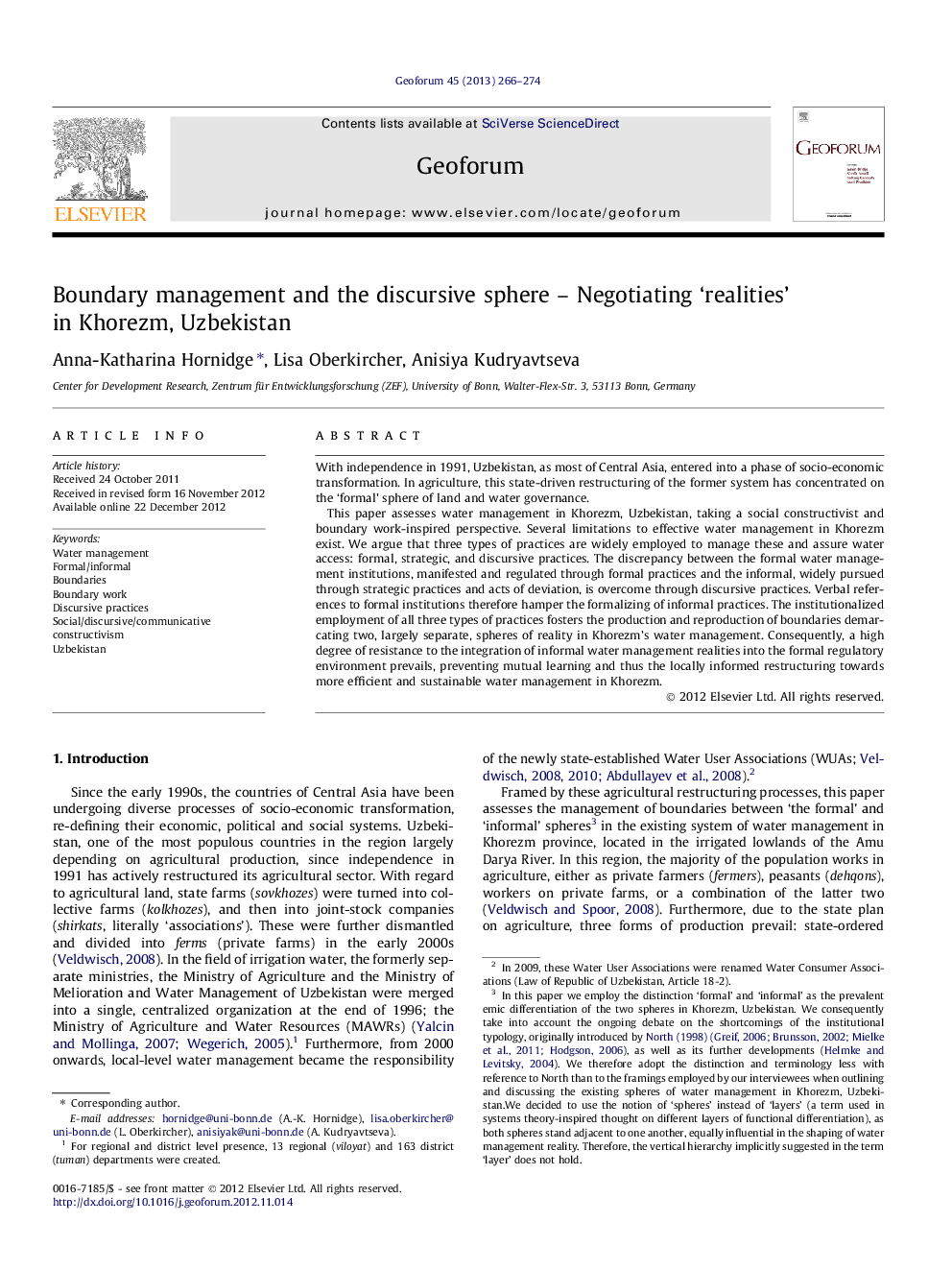| Article ID | Journal | Published Year | Pages | File Type |
|---|---|---|---|---|
| 5074169 | Geoforum | 2013 | 9 Pages |
With independence in 1991, Uzbekistan, as most of Central Asia, entered into a phase of socio-economic transformation. In agriculture, this state-driven restructuring of the former system has concentrated on the 'formal' sphere of land and water governance.This paper assesses water management in Khorezm, Uzbekistan, taking a social constructivist and boundary work-inspired perspective. Several limitations to effective water management in Khorezm exist. We argue that three types of practices are widely employed to manage these and assure water access: formal, strategic, and discursive practices. The discrepancy between the formal water management institutions, manifested and regulated through formal practices and the informal, widely pursued through strategic practices and acts of deviation, is overcome through discursive practices. Verbal references to formal institutions therefore hamper the formalizing of informal practices. The institutionalized employment of all three types of practices fosters the production and reproduction of boundaries demarcating two, largely separate, spheres of reality in Khorezm's water management. Consequently, a high degree of resistance to the integration of informal water management realities into the formal regulatory environment prevails, preventing mutual learning and thus the locally informed restructuring towards more efficient and sustainable water management in Khorezm.
⺠Fragmented into two, largely separate spheres of water management. ⺠Each sphere is defined by boundaries but facilitated by little boundary settings to overcome these. ⺠The boundaries are continuously strengthened through the employment of discursive practices. ⺠Due to which the system is highly resistant to the formalization of ongoing changes from within.
